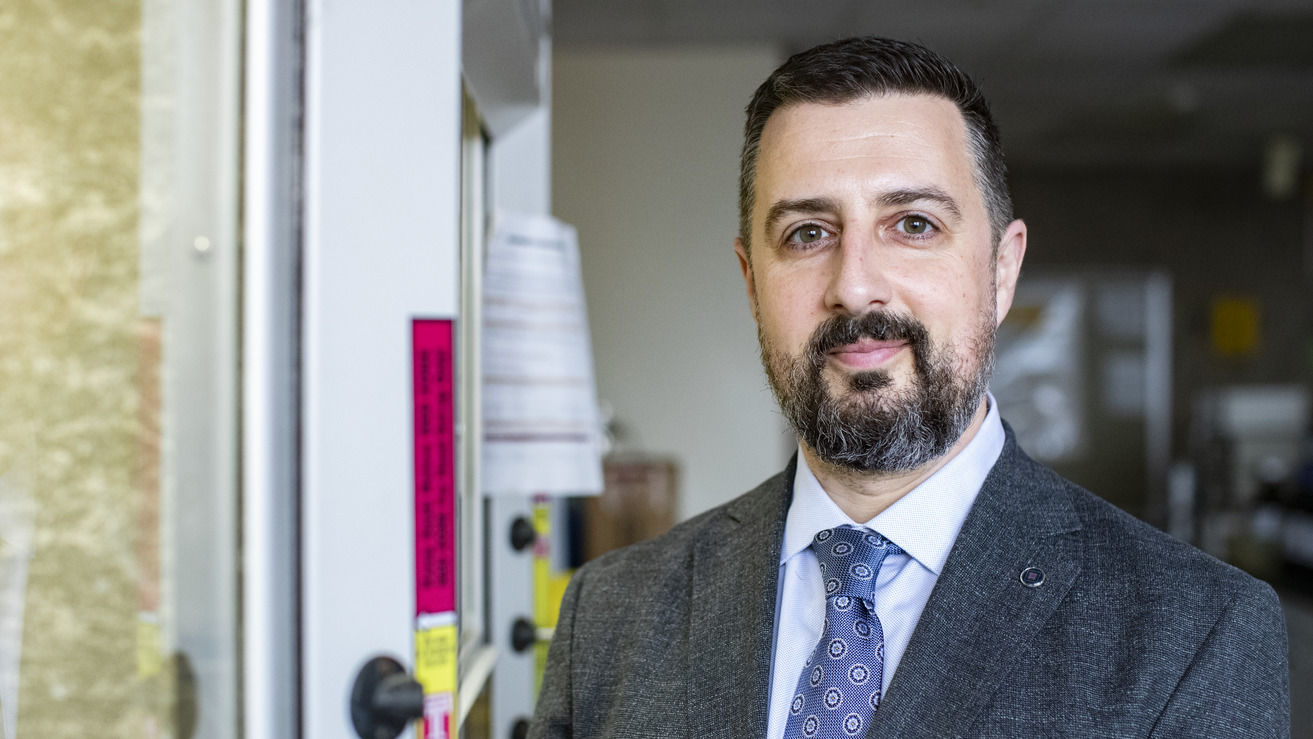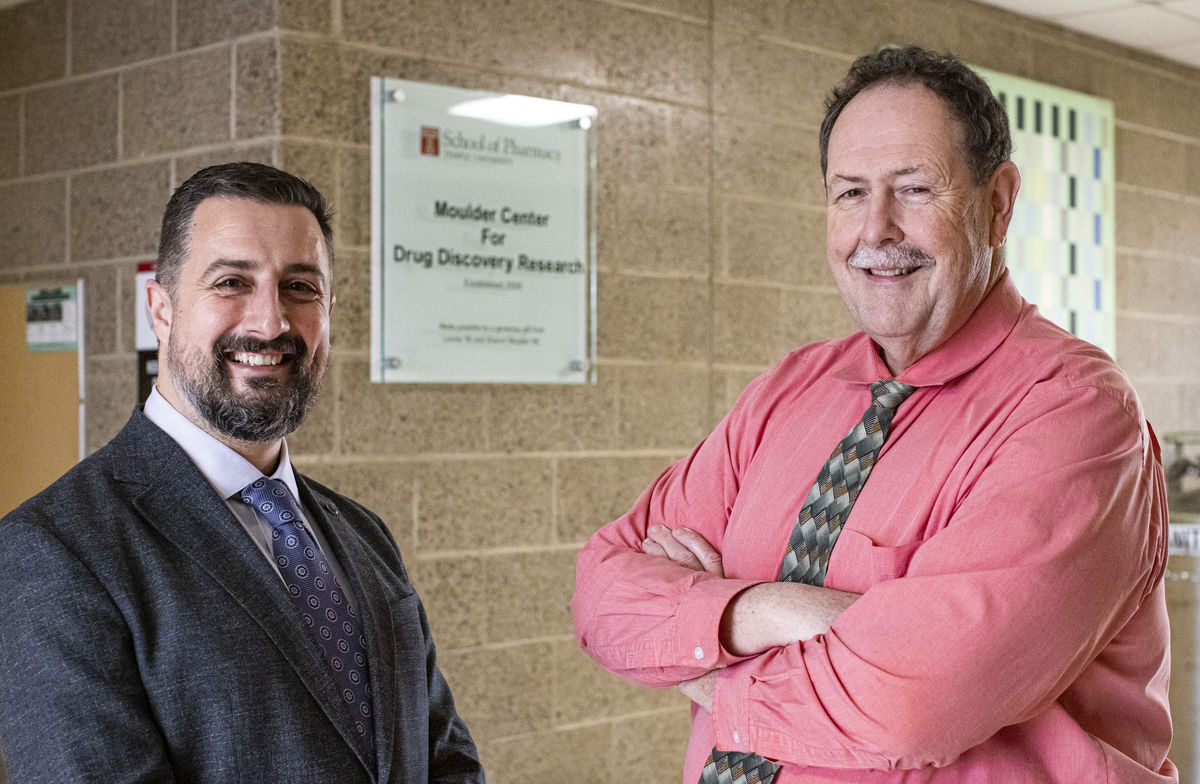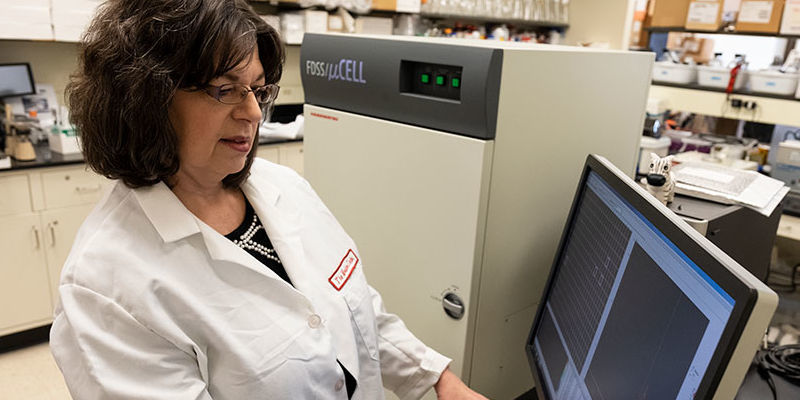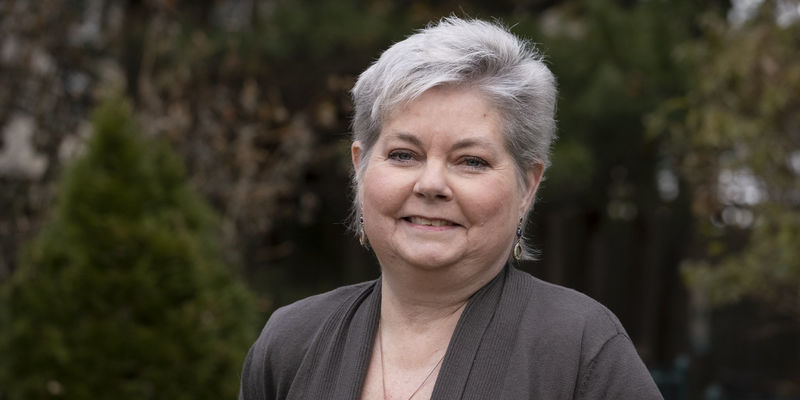New Moulder Center director appointed to lead drug discovery team
As the newly appointed director of the Moulder Center, John Karanicolas plans to continue and expand upon the research center’s innovative search for novel drug candidates.

John Karanicolas, professor of molecular therapeutics at Fox Chase Cancer Center, was recently appointed director of the School of Pharmacy’s Moulder Center for Drug Discovery Research. He was selected to direct the center last December and took over the position at the start of January.
Karanicolas will lead the Moulder Center’s innovative approach to developing new drug candidates alongside Wayne Childers, who is continuing his role as the center’s associate director. A faculty member at Temple since 2016, Karanicolas also recently took over as co-program leader of molecular therapeutics at Fox Chase Cancer Center. He said there is a useful synergy between his role at the Moulder Center and the work he does at Fox Chase researching new anti-cancer drugs and ways to use existing cancer drugs in new therapeutic contexts.
As director of the Moulder Center, Karanicolas will oversee efforts to advance drug discovery research beyond initial stages and closer toward clinical use.
“Drug discovery requires so many related disciplines that it becomes impractical for one research group to be able to do all of this. Through the existing infrastructure at the Moulder Center there’s lots of expertise that is highly complementary to what any one research group can do, so this opportunity to build a large team with complementary expertise that could comprise a full drug discovery pipeline was extremely attractive to me,” Karanicolas said.
The center is known for its important work in the beginning stages of drug development, including screening a drug candidate’s compound library against specific targets to find starting points for new drugs.
“We have also worked on what’s called hit-to-lead optimization, in which we take the initial hits that come from that screening step, and we develop them further to make them more efficacious and more drug-like,” said Karanicolas, who earned his PhD in macromolecular and cellular structure and chemistry from Scripps Research in 2003.
As a leader in research methods such as high-throughput screening and synthetic chemistry, the Moulder Center has a proud history of providing university researchers with tools for advancing their work. Karanicolas plans to continue offering those services while focusing specifically on adding support for innovative new approaches to drug development.
“For example, emerging computational tools to identify hits have become exceedingly effective for challenging therapeutic targets,” Karanicolas said.
He plans to focus the center’s research on traditionally challenging drug targets like reactivating tumor suppressors, as well as new therapeutic modalities like biological drugs and molecular glues.

John Karanicolas poses with Wayne Childers in front of the Moulder Center. (Photography by Ryan S. Brandenberg)
Karanicolas has already begun working closely with the Moulder Center’s staff of researchers including Associate Director Childers and scientists Jack Gordon and George Morton.
Research conducted at the Moulder Center has led to important advancements for drugs treating addiction, diabetes, neurodegenerative diseases and cancer, among others. One of the center’s more recent breakthroughs involved a project in collaboration with the Fels Cancer Institute for Personalized Medicine and Fox Chase Cancer Center, where researchers discovered the first selective CDK9 inhibitors as a new way to modulate certain tumor suppressor genes. Those results were recently published in the journal Cell.
Under Karanicolas’ direction the Moulder Center team will continue advancing drug candidates toward commercialization, something he says benefits not only the university, but more importantly, patients in need.
“As scientists working in the basic biology of disease, we really want to see our inventions move as far forward as possible so that patients can benefit. And in order for patients to benefit we need a path where these inventions can reach the clinic,” Karanicolas said. “Commercialization is tied closely with that, because without commercialization our discoveries can’t have as direct an impact on patient outcomes.”


